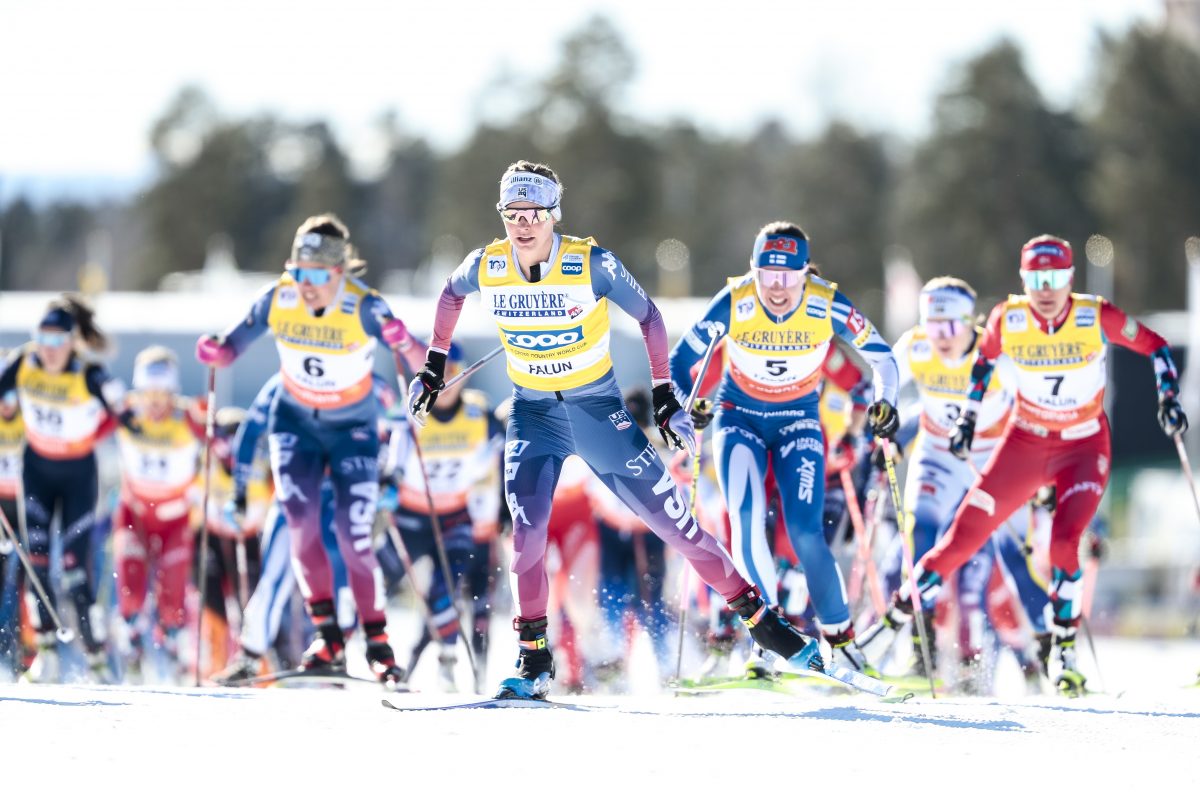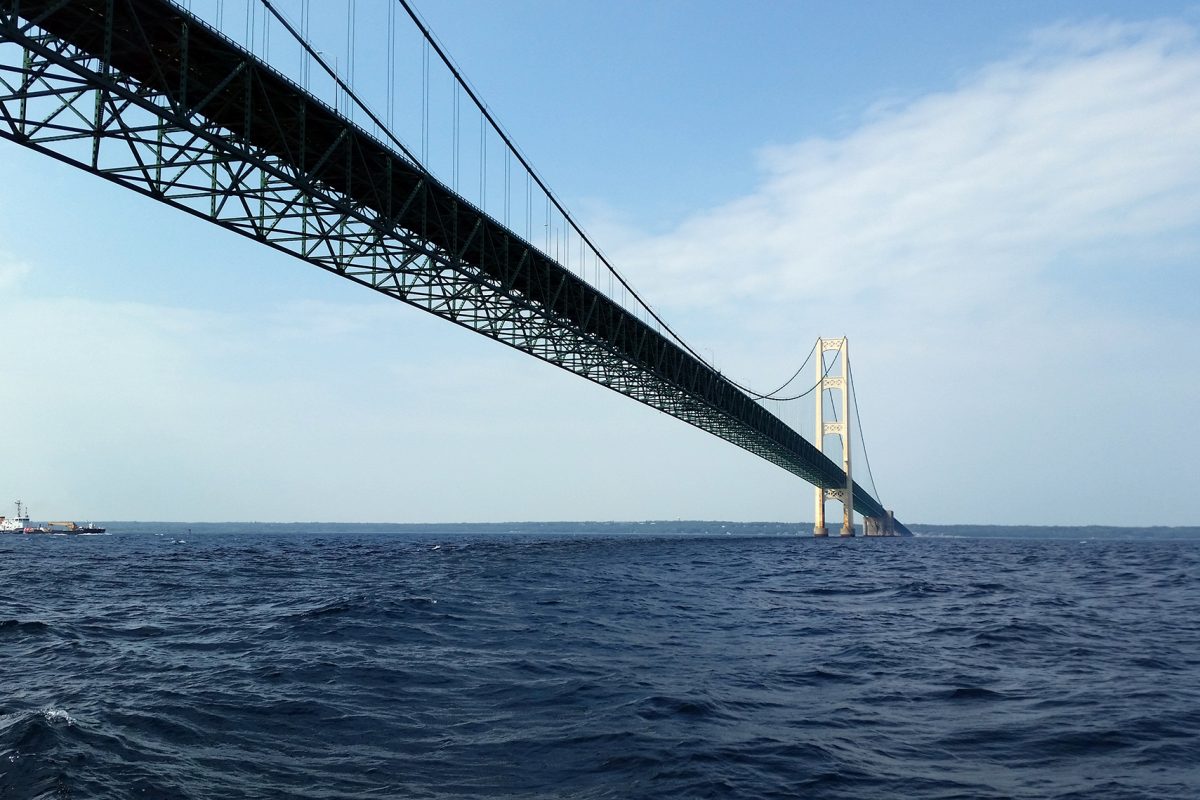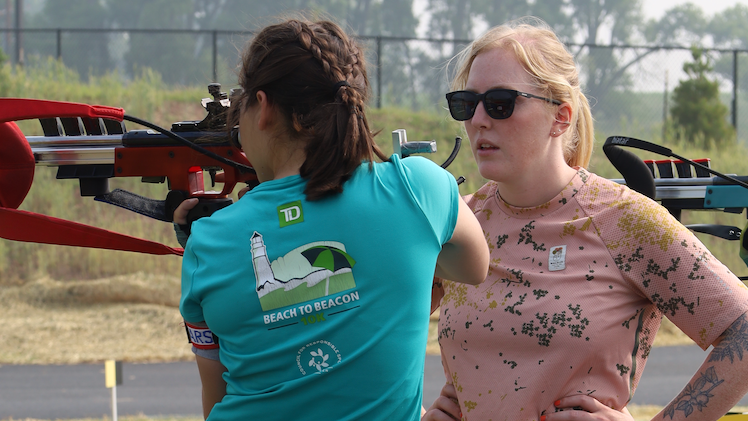
While there’s a full schedule of World Cup racing scheduled in Antholz, Italy this weekend, Friday’s sprint might very well have been the last individual race the U.S. women had a chance to contest in Europe before World Championships.
With a relay on Saturday and a mass start, capped at thirty athletes, on Sunday, and then the entire World Cup circuit picking up and heading to the U.S. for a few weeks in February, the sprint in some ways represented the end of two months of European racing.
And the U.S. delivered. Laura Spector again led the team, finishing 23rd and snagging the last bib in the mass start. Haley Johnson finished a season-best 37th, and Sara Studebaker tied for 56th.
The results once again seemed to prove that the women, long overshadowed by the men’s team, deserve some attention themselves.
Spector shot clean and her time split after the second shooting stage had her in 13th place. However, she slowed on the final loop, ending up 23rd – 0.3 seconds behind overall World Cup leader Kaisa Makarainen of Finland. Antholz’s 5,000 feet of elevation meant that some favorites didn’t perform up to expectations.
But Spector adjusted accordingly.
“I imagine most everyone felt tired by the end of this one,” she said in an e-mail. “Racing at altitude in the dry air is definitely a different feeling and requires that you expect to feel a little lung burn going into the race. I tried to slow down my tempo on this course because there is more gradual climbing, but because of fast conditions it was important to get all the glide you could on the flatter sections.
“I really didn’t think too much about shooting before the race or set any kind of expectations for myself,” she continued. “I’ve been dryfiring [shooting without bullets from short range, usually inside] a little more than in the past few weeks and I think it has helped to make the shooting more efficient and natural for me.
“I am definitely starting to feel tired as we approach the end of a three week block of racing.”
Studebaker agreed: the two have been in Europe since mid-November, and “being tired comes with the territory.”
“The sprint was an okay race for me,” Studebaker told FasterSkier. “I felt okay skiing, but it’s tough here because of the altitude. Prone was great, but I had some trouble in standing. I ejected a round and had to hand load, and I think just came in too hard. The range approach here is difficult and I don’t think I was quite ready to shoot when I came in for standing which made me a little shaky.”
Johnson missed one target in each shooting stage, errors which kept her out of the top twenty, given that her ski time was actually faster than Spector’s. However, compared to last weekend’s pursuit, where she missed seven shots, it was a huge improvement.
When asked what had changed about her shooting, Johnson said “nothing.”
“I have remained focused on the same elements of my shooting,” she said in an e-mail. “Improving hitting percentage isn’t necessarily about changing your shooting process; it’s sometimes more about just trusting it more and going for it.”
Like Spector, Johnson said that she had adjusted her strategy due to the altitude and the uphill approach to the range.
“I really like racing in Antholz… the altitude, uphill range approach and wind are good reminders to stay focused in the range. It’s a fast course- it’s only a matter of minutes before you quickly return to the range, so adjustments and adaptations need to be made quickly. Because of the higher altitude you need to account for heavier breathing by taking a few extra breathes in your shooting process. I take three breathes before settling on the first target instead of two, for example.
“I am feeling pretty good on skis and am really looking forward to the upcoming US World Cups,” she concluded.
Speaking of good on skis: Tora Berger of Norway picked up her third win in a row, crushing the field by almost 30 seconds in a 20-minute race. Berger shot clean, but so did plenty of other women.
Berger said that the key to her success in Antholz was living at a lower elevation.
“I have good races here, so I like the place,” she told IBU News. “I generally do not have any problems with the altitude, as long as I stay down low and race up here. When I lived up high, I did not have good races here.”
Anastasiya Kuzmina of Slovakia finished second with one penalty. Kuzmina, who is originally from Russia, was actually the less-successful member of her family this weekend: brother Anton Shipulin, racing for Russia, won the men’s sprint on Thursday.
Along with Berger’s win and her brother Lars Berger’s third-place finish in the men’s sprint, it made it a good weekend to be siblings on the World Cup circuit.
Tora Berger seemed thrilled for her brother, and the two seem close.
“I am happy that my brother was on the podium again, because some years he does not do so well,” she told IBU News.
Kuzmina, meanwhile, was more detached.
“I did not watch his race,” she said of Shipulin’s victory. “I only turned on the television, when the results were final. . . I am very happy for him, but I focused on my race today. . . He set the bar very high for me today with his victory.”




